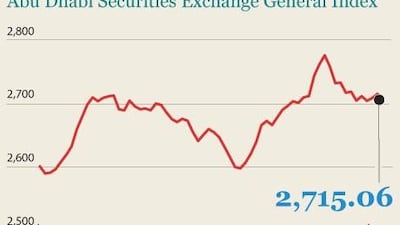Investors flocked to shares in Aramex and Air Arabia as traders looked to diversify their portfolio away from banking and property companies.
Market Forces: The winners and losers so far in 2011
Fair result for UAE after roller-coaster first half After a turbulent six months during which parts of the Middle East and North Africa were hit by political unrest, we focus on where UAE stocks and companies stand. Read article
These companies were among the most heavily traded stocks in Dubai in afternoon trading.
Aramex, the logistics company, added 0.6 per cent to Dh1.81 as more than 13 million shares changed hands and Air Arabia, the low-cost carrier based in Sharjah climbed almost 1 per cent to 68 fils. Almost 4 million shares were traded on this stock today.
These stocks are regarded as good performing stocks at times of economic volatility.
But shares traditionally subject to volatile trading fell with Arabtec slipping 0.8 per cent to Dh1.31 and Emaar Properties falling 1.3 per cent to Dh3.09.
The Dubai Financial Market General Index, the emirate's main benchmark, capped some of the gains it made yesterday as it closed 0.2 per cent higher to 1,555.59 points. Yesterday it made its biggest daily gain in almost three months as the market was buoyed by clarity over Greece's debt situation.
In the capital, the Abu Dhabi Securities Exchange General Index edged 0.3 per cent higher to 2,715.06 points.
Some analysts remained positive however about the country's market performance.
"You have two things that happened immediately in the last 10 days that don't really have an imminent effect but they are positives," said Akram Annous, a regional equity strategist at Al Mal Capital.
He cited the government's extension on the visa period for homebuyers and the potential for an upgrade to emerging markets status for the UAE markets as creating long-term positive catalysts in the next few months trading.
The summer months are often a period of lacklustre trading in the absence of a strong catalyst and in the run-up to a Ramadan rally.
It has meant the movement of local bourses is more likely to be dictated by international equity moves.

